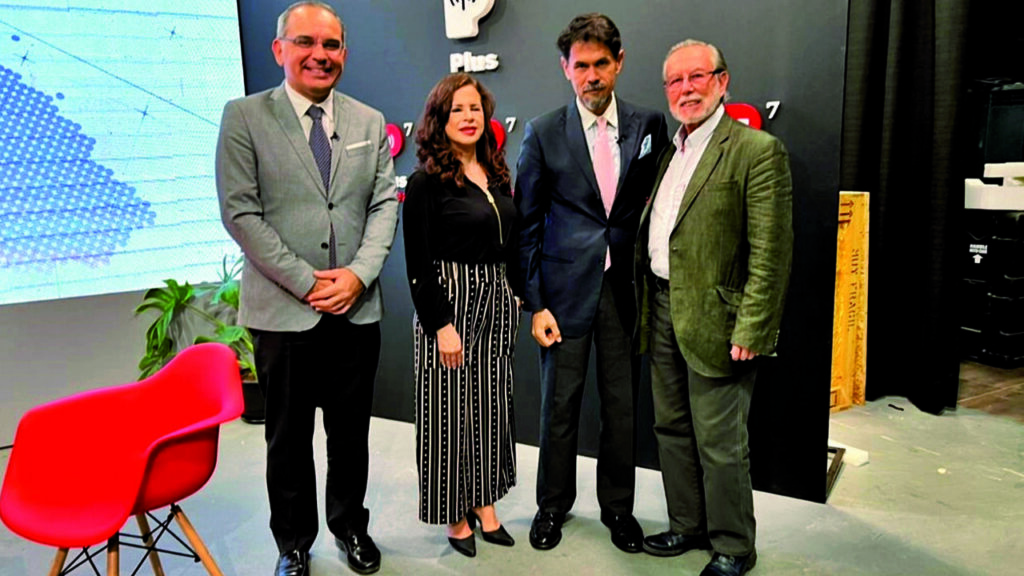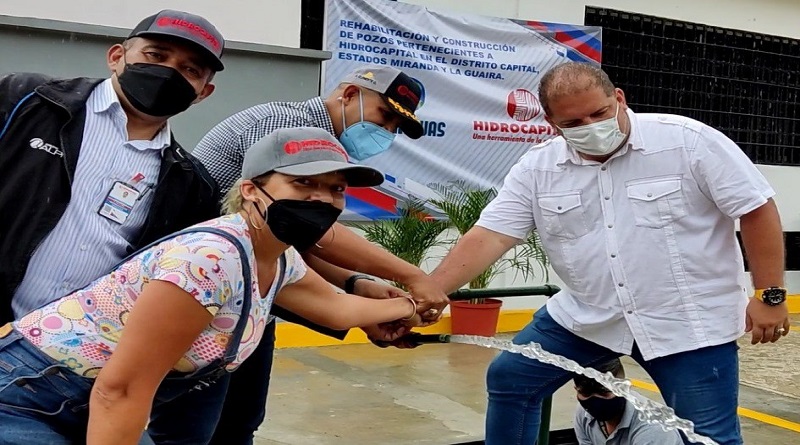The federal judge of Esquel Guido Otranto declared this Monday “partially admissible” extradition request carried out by the Colombian government against Argentine photojournalist Facundo Molares Schoenfeld, in a case in which he is accused of alleged crimes committed as a member of the Revolutionary Armed Forces (FARC) of that country, while the defendant’s defense announced that it will appeal the resolution, which it described as “terrible”.
In a virtual hearing where Molares Schoenfeld (detained in the Ezeiza prison) and the parties participated, the judge declared the extradition “partially appropriate”, focusing it on the crimes of “aggravated extortive kidnapping, aggravated homicide and qualified robbery”, and announced that on Thursday the complete foundations of the sentence will be known.
The magistrate referred to kidnapping of Colombian councilman José Armando Acuña Molina, where Molares would have had the task of guarding him during part of his captivityaccording to Otranto, and the ambush of a police patrol to steal their weapons by the FARC.
Neverthelessthe judge considered “inadmissible” to extradite him “for crimes of terrorism” as well as others claimed by the Colombian Justice, while requesting the National Executive Power (PEN) that, through the Foreign Ministry, “requires Colombia to guarantee the conditions of detention” of Molares Schoenfeld so that “his life is preserved” , since his defense had assured that he could be assassinated if he was sent to that country.
The defense of the Argentine is exercised by the lawyers Gustavo Franquet and Eduardo Soares, that make up the Lawyers Guild, and the case attracted the support of human rights organizations that considered the extradition “inadmissible” since “the accusations made, uncertain and unfounded, correspond to the period covered by the Peace Agreements,” as they warned in a declaration by the Mothers of the Plaza de Mayo, the Founding Line, the Permanent Association for Human Rights (APDH) and the Argentine League for Human Rights, among other entities.
“The sentence is very bad. The judge paid attention to the prosecution, which asked to get the problem out of the way and throw it at the Supreme Court,” Franquet complained in dialogue with Télam.
For the lawyer, “The judge states that the Colombian common law has jurisdiction and it has been shown that it does not have jurisdiction in cases like this, therefore he cannot” request extradition.
“We believe that it is a terrible ruling and what the federal judge does is wash his hands, meanwhile Facundo Molares remains in prison,” added the lawyer.
Before the verdict, Molares Schoenfeld had the floor and asked for “a favorable ruling (rejecting extradition) that does Justice”, In addition to saying that since he was a child he feels “the need to fight for justice, an ethical and moral imperative that many young people have.”
“I chose to take sides in the fight for social justice and equality of human beings, that fight led me to make decisions of great commitment. Among them the most important was to join a fight in a brother country, in which I invested almost half of my life and I learned a lot,” he said about his militancy of more than a decade in Colombia.
The Argentine called for “committing ourselves to the fight for a fairer society where there are no exploiters and exploited,” and ratified: “My joining the fight in Colombia was a political joining, and I still claim it. It was fair.”
Their lawyers detailed to Télam that they will appeal the Otranto decision, while militants who support Molares demonstrated – as soon as the adverse ruling was known – at the door of the Ezeiza prison, where the Argentine has been detained since November of last year, when he was arrested by the Interpol division of the Federal Police in the house of his father in the Chubut town of Trevelin.
The extradition request of the Government of Iván Duque was rejected by the defense and by human rights organizations that maintain that the ordinary criminal jurisdiction of Colombia does not have jurisdiction to request extradition because the crimes imputed to him predate the Peace Agreement of 2016, so they must be dealt with by the Special Justice for Peace (JEP), court in charge of administering justice to the actors of the armed conflict.
“Extraditing Facundo Molares is equivalent to extraditing him to be killed, because it is quite clear that (in Colombia) they are waiting for him to be killed,” He had also indicated his defense during the trial, which began on April 20 last and will conclude on Thursday with the reading of the final sentence, whose arguments Otranto advanced on Monday.


















